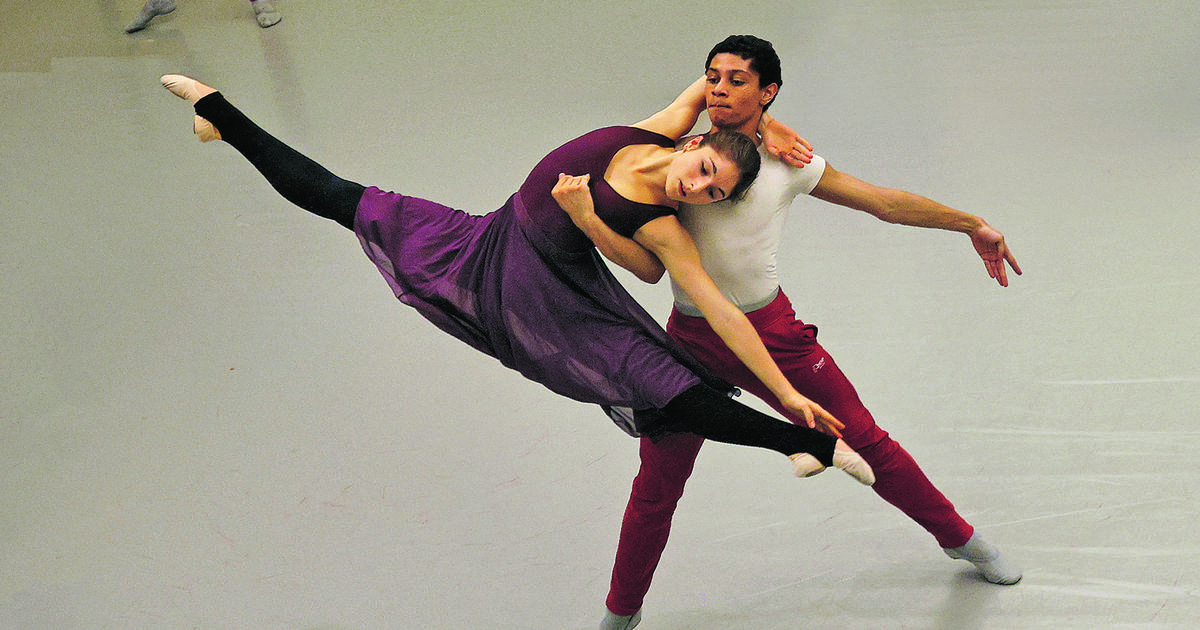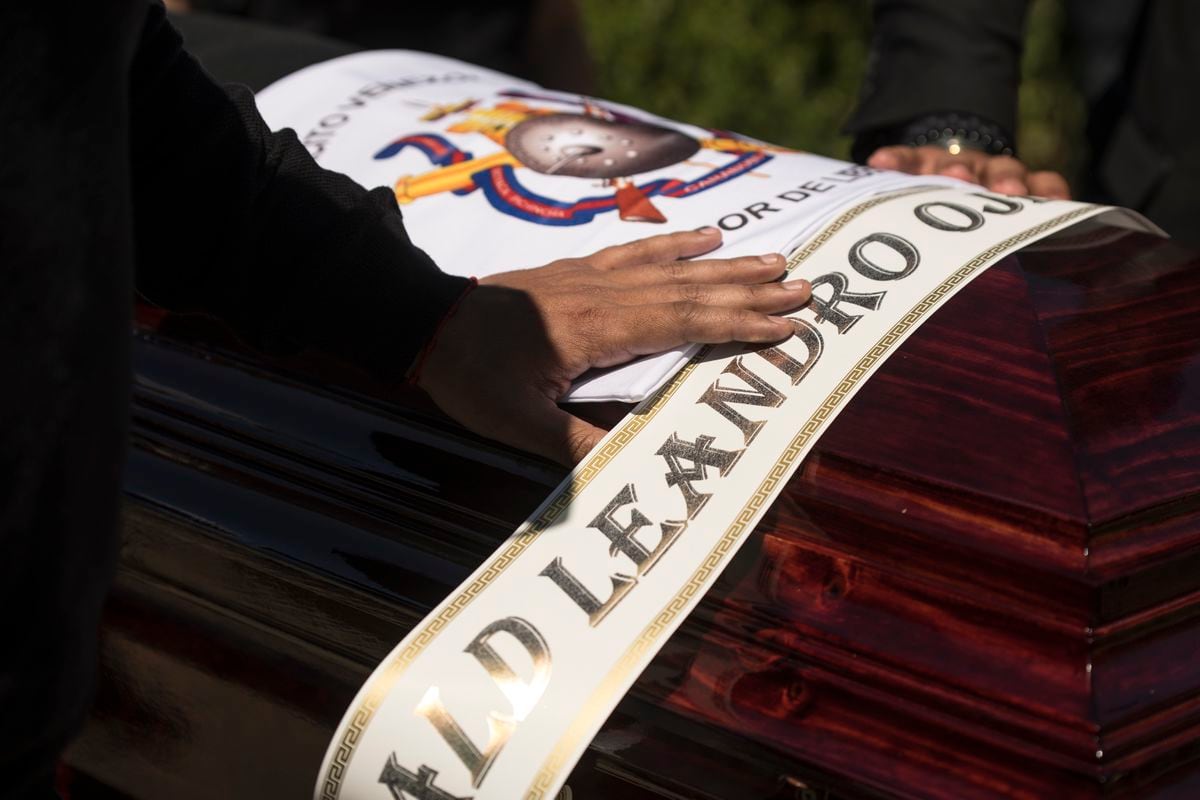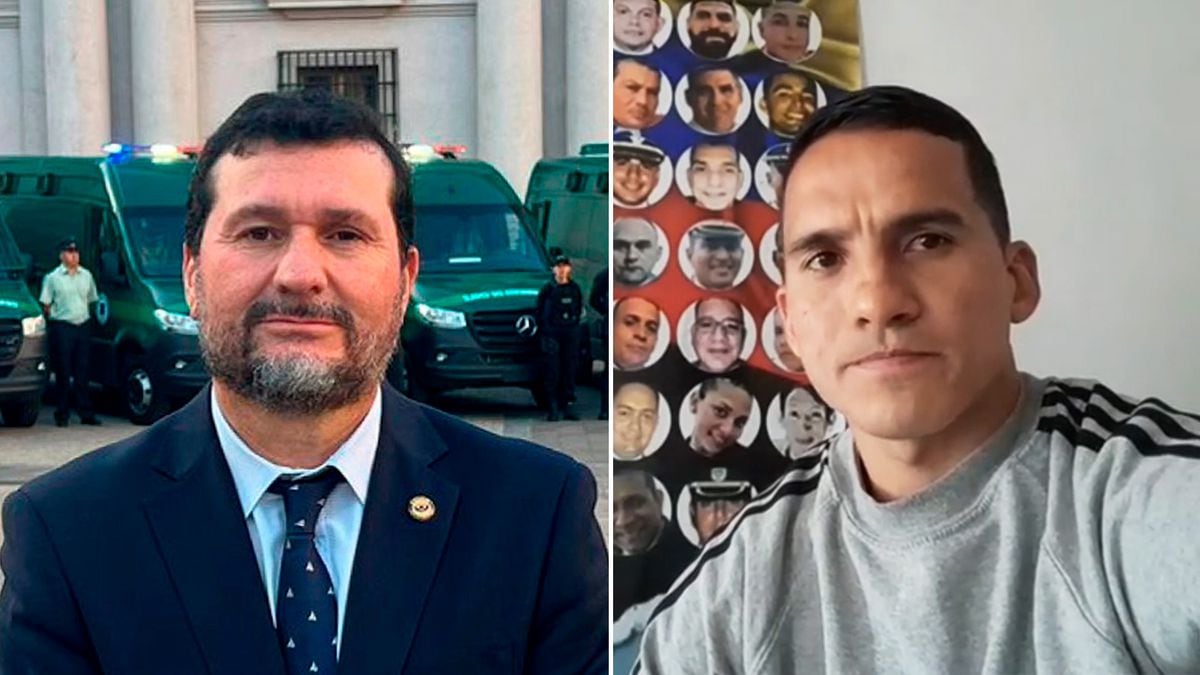The insignia of the Colegio San Ignacio El Bosque at the entrance of the educational center in Santiago de Chile.sofia yanjari
The scandal occurred during the first recess on Friday, March 31, at the San Ignacio El Bosque school, a private educational establishment run by the Jesuits, one of the favorites of the Santiago de Chile elite to educate their children.
Some 25 seventh and eighth grade students —between 12 and 13 years old— demonstrated against the difference between the girls' and boys' uniforms and the lack of spaces designed for them.
The young women belong to the first mixed generation in a historically masculine establishment that opened in 1960 as the headquarters of the historic San Ignacio, the one in the center.
As girls, they launched the new system in the first year of preschool in 2013 and today, already adolescents, they seek to pave the way for those who follow them.
Protest,
which consisted of breaking the dress code with shirts other than those allowed, did not greatly alter the school routine.
The crisis broke out when they were returning to their classrooms after discussing the petition with three academic authorities: a group of I and II high school students —between 14 and 15 years old— approached them in a corridor and, according to them, physically and verbally assaulted them. .
The images of what happened were recorded by some of the 50 security cameras of the school in the municipality of Providencia, seized by the Prosecutor's Office.
In the establishment they report that "the chaotic situation" lasted four minutes and does not reveal great details: boys and girls are seen jumping, some laughing and others crying.
The affected students notified their parents that they had been abused and asked them to pick them up.
Another told his older brother about the alleged perpetrators and the school authorities stopped him before he hit them.
One of the parents called the Carabineros.
Two agents entered the premises in search of explanations —an unprecedented event in the San Ignacio—, but they left shortly after speaking with the management.
The backlash of the scandal continues three weeks later.
12 proxies (as parents of schoolchildren are called in Chile) filed complaints of sexual abuse against a publicly unidentified number of students at a police station.
The chief prosecutor for Gender, Carolina Fuentes, who is leading the investigation, explained to EL PAÍS that, as they were under 18 years of age, the first thing that was done was an evaluation of the students involved by the Regional Units for Attention to Victims and Witnesses (URAVIT) and then she, as prosecutor, conducted a videotaped interview with each one.
This stage is practically ready, but there are other investigative steps in progress that they cannot detail.
Those over 14 who are found responsible risk being charged in court,
The reaction to what happened transcended the school community.
The Minister of Education of the Government of Gabriel Boric, Marco Antonio Ávila, ordered an inspection of the school to determine if it complies with the required prevention protocols.
The Minister for Women, Antonia Orellana, very close to the president, "deeply" rejected the denounced facts, as did feminist organizations.
The San Ignacio El Bosque school, with differentiated tuition —parents pay according to their income, but the majority belongs to the upper class— is recurrent in the lists of establishments with the best academic results in Chile, which partly explains the great coverage media that the issue has had.
With a strong social focus, it is reputed to be a Catholic, but progressive school.
“The students are right”
The chaplain of the school, Rodrigo Poblete, is the highest-ranking Jesuit in the establishment, whose rector is a lay woman, Luz María Acle.
It is the first time that he talks about this issue in the media and receives this newspaper in the same room where the accused students were "held."
The educational center suspended seven of them, of which five returned to class this week.
The internal investigation of the establishment concluded that three of the accused did not participate in what happened and the other two carried out verbal attacks.
The remaining two were expelled a few hours ago, although they will be able to appeal this decision within 15 days.
“The students ask for two things: more space, more participation.
They say it's a macho school.
And change the uniform”, says Poblete.
“Deep down they are right.
This is a traditionally male school.
And when the mixed courses progress, two different realities come together and the new one begins to push the previous one.
The school somehow knew that this was going to happen ”, he adds, acknowledging responsibility.
It has been a strong shock in the school, where mothers and fathers prefer to keep public silence, like the rector herself.
Since the events of March 31, San Ignacio El Bosque has provided psychological support to those involved, but the routine has become rare: breaks and meal times for the seventh and eighth grade generations – the mixed ones – are now in a Differentiated schedule to those of I and II medium, to avoid contact.
The measure is temporary, but there is no normalization date.
The students who were suspended and reinstated entered the first day an hour and a half after their classmates.
The case of aggression has provoked the indignation of the attorneys.
On the one hand, the parents of the girls in the courses involved say that their daughters feel insecure at school, "they have been saying it for some time," says Poblete.
On the other hand, part of the parents of the students in the last two male courses affirm that their sons "are unprotected, that they feel invisible to the girls."
The school defends that last year they carried out a survey on coeducation from fifth to fourth grade – between 10 and 17 years old – and more than 70% said they felt “very satisfied”, more than 20% claimed that something was missing and only 3 % felt “super dissatisfied”.
Facade of the San Ignacio El Bosque School, in Santiago.sofia yanjari
The division of fathers and mothers
Jaime Bustos, 43, is the president of the school's parenting center and, like the chaplain, for the first time publicly refers to what happened before the media.
He and his wife, with whom he shares the position, have cared for the parents of the boys and girls involved through community and individual meetings.
He assures that the positions vary from those who request the expulsion of the students involved to others who request training and accompaniment instances.
Everyone agrees that the school is transparent with the advances of the investigation and concrete actions from now on.
The educational center publishes practically daily the measures that are being adopted to face the crisis.
“We are asking for the details that they are doing it in coeducation, adaptation of activities,
The representative of the parents, who does not want an entire generation to be branded for what happened, argues that the pandemic effect contributed to the situation: the students of the generations that demonstrated left as girls and returned two years later to the classrooms turned into pre-adolescents, says Bustos, without mentioning the boys who lived through the health crisis just like their schoolmates.
The fathers and mothers consulted for this report ruled out participating, as did the rector.
If the school knew that the relationship between the mixed and male courses was going to produce tensions and the parents of the girls have been warning "some time ago" that their daughters feel insecure, what did they do to avoid what happened on March 31? ?
Last year the school organized a day between the mixed and masculine courses, the courses from 14 to 18 years old.
Psychologists, fathers and mothers participated, and raised ideas on how to improve the establishment.
“Something was done about it.
Today, looking at it in perspective, it was insufficient”, Poblete affirms about an evident fact given what happened on March 31 and that continues to generate debate in Chilean society, on a particularly sensitive issue today: equality between men and women.
"Gender violence"
The chaplain assures that in the mixed courses there are no problems of coexistence.
The clash occurs with adolescents.
“They feel that they are no longer seen, because everything has to do with the little girls.
They don't see mixed courses, they see little girls.
We have lacked
expertise
to generate an experience where the mixed courses proudly say that they are the first generation and the immediately older ones proudly say that they are closing a stage”, says Poblete.
The second semester of last year, the school hired the advice of the Niñas Valientes Foundation, dedicated to promoting gender equity in the educational process.
Its president, the psychologist Carla Ljubetic, affirms that they have worked to guide the transformation process of the educational community towards one that is formative, equitable, inclusive and free of violence.
One of the pending workshops is the awareness of courses on gender equality and violence prevention that will be taught from seventh to second half.
Regarding what happened, Ljubetic qualifies it as a "situation of gender violence and it is important to address it from that place."
But he points out that they should not be isolated from the social context, where there is a problem of violence and inequality, even if they are the most privileged students in the Chilean school system.
In addition to the intergenerational meeting, Poblete adds that they have been training the oldest teachers to change the inclusive vocabulary —"some still do not do it"—, that they opened a garden especially for the students (the school grounds have seven hectares) because "It's not all soccer fields", which involved the canteens and the themes in history courses, for example, adding more female protagonists.
The generation of Chilean girls and adolescents from San Ignacio El Bosque is the daughter of the feminist marches that broke out in the streets in 2018 and gave rise to the name "the new Chilean feminist wave."
Regarding the organizational power of the students, the chaplain explains that “as a school, it seems good to us that the students absorb the reality from abroad.
We encourage a critical spirit, we generate dialogue and that is very stressful”.
But the claims of the students are not something new, there were already precedents before they were attacked by classmates from schools older than them, as they denounce.
In November of last year, some twenty students delivered a letter to the principal in which, among other requests, they mentioned the issue of uniforms.
When the students go to sixth grade —11 years old— they must wear tracksuits and they wear skirts.
And in gymnastics, men in shorts and women in leggings.
In addition, they claimed that compliance requirements were more flexible with boys than with girls.
The School Council decided to postpone the discussion until when they went to high school (the last cycle of four years, which until this year is only for men) and thus actively participate in the debate,
since they would be part of the student center.
But they considered that it was not possible to wait to make their claim heard.
The Prosecutor's Office, meanwhile, continues with its investigation.





/cloudfront-eu-central-1.images.arcpublishing.com/prisa/IB45V76TEFBC7FD7KWZYAN2FEY.JPG)



